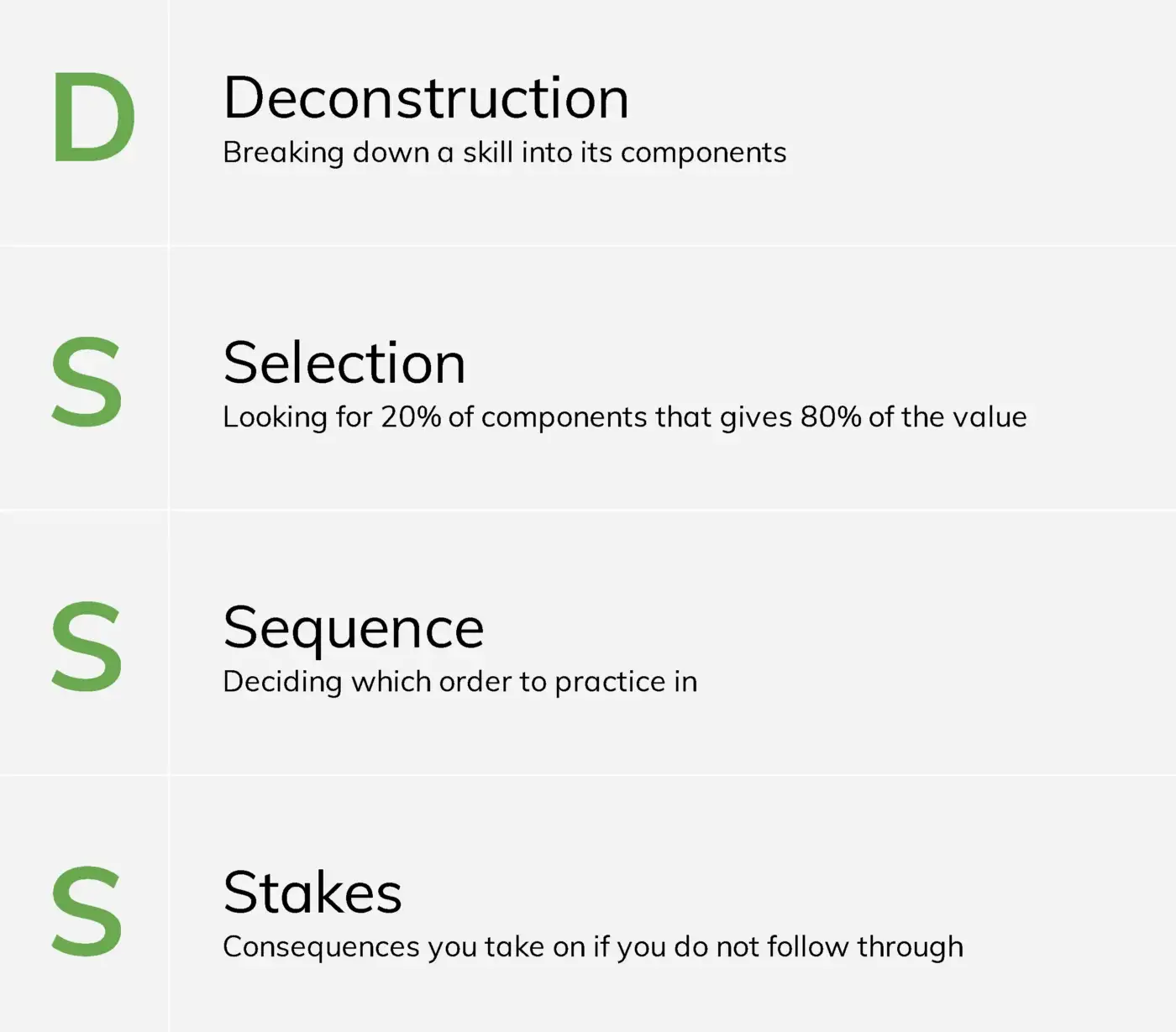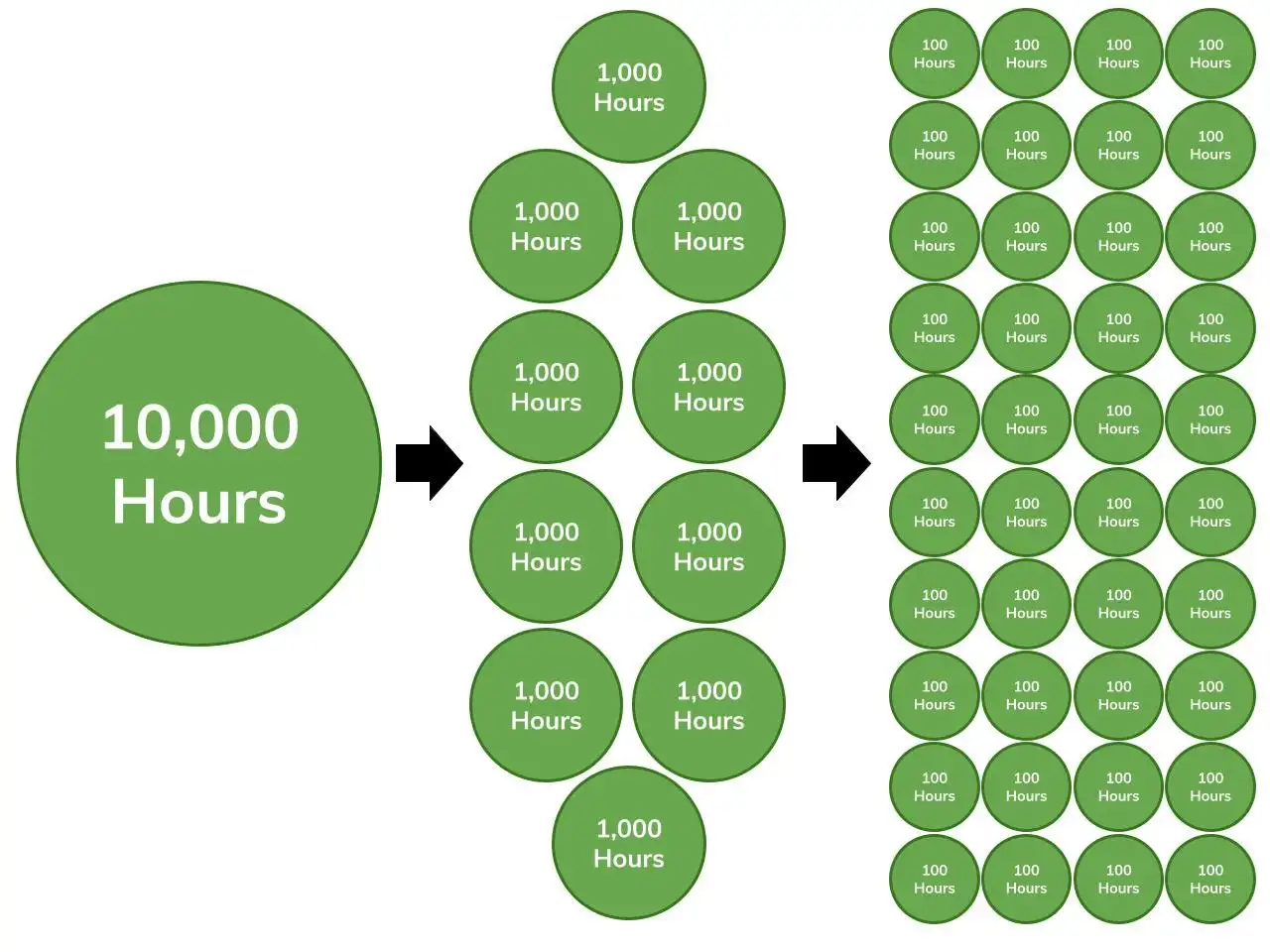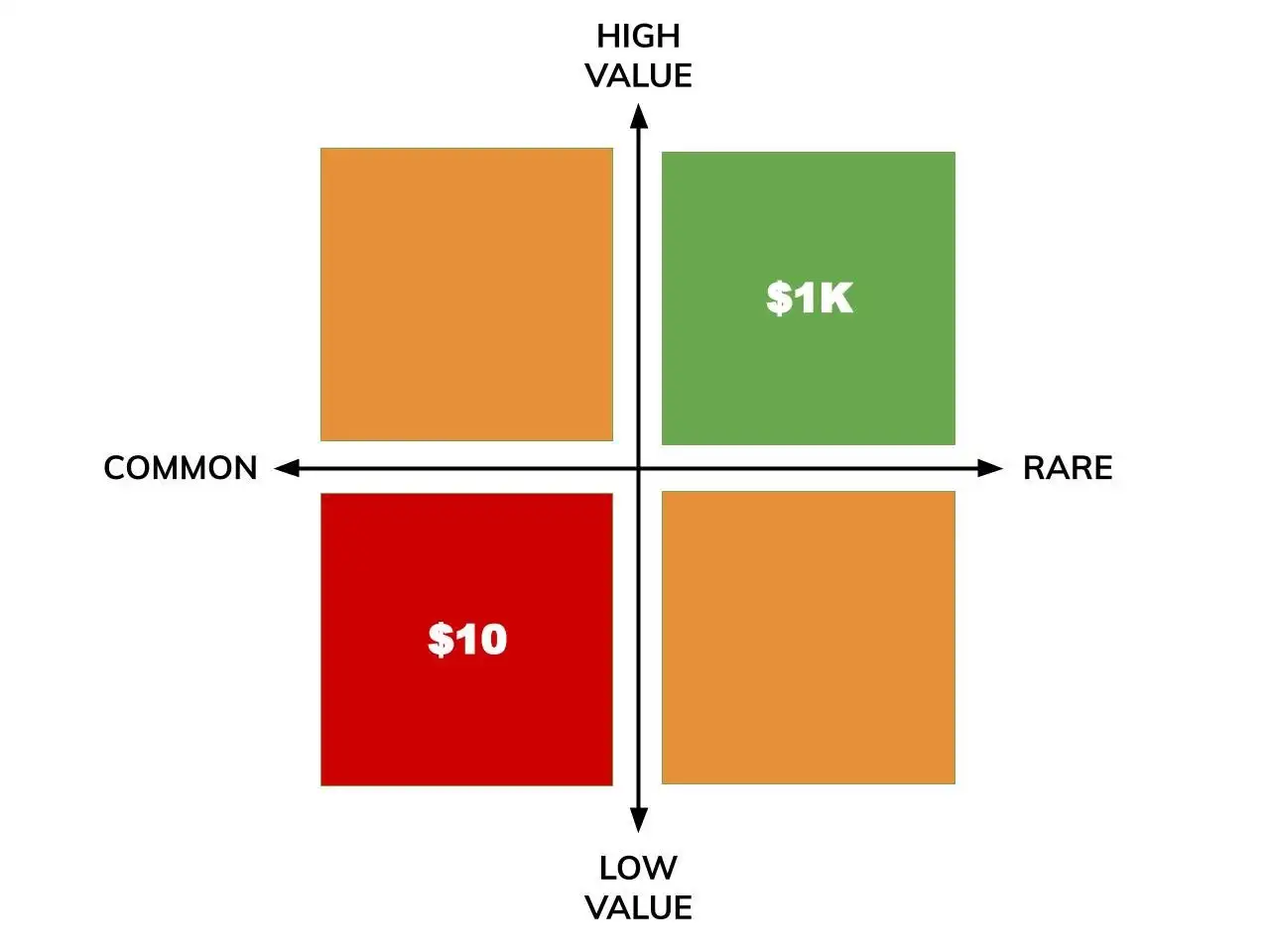A Simple Framework For Meta Learning ⚡️
Nov 16, 2022 . 3 min read . 504 views
title: 'A Simple Framework For Meta Learning ⚡️' publishedAt: '2022-11-16' summary: 'Learning a new skill fast is one of the most important skills that most billionaires have in common.' category: '#Learning'
Learning a new skill fast is one of the most important skills that most billionaires have in common. Here in we look at a common framework that can help anyone to acquire high value skills blazingly fast.
Skill Acquisition Formula
Deliberate Practice * Skill Selection * 100 Hours = World-Class Skill
- Deliberate Practice is spending time practicing doing the right things
- Selecting the right skill to practice
- 100 hours spread across 100 sessions
Step-1: Identify your top priorities
Warren Buffet's 5/25 rule is a very helpful mental model to think about things that you really want and you should focus on and the things that you should avoid at all cost.
The 5/25 Rule of decision making:
- List down the top 25 things you want to accomplish in the foreseeable future
- Circle the top 5 items
- Now focus only on these 5 items and avoid the rest at all costs
Step-2: Apply Tim Ferris's method for meta learning

Deconstruct
Break a bigger skill into multiple smaller macro smaller skills. Keep breaking down the skill until you have arrived at a macro skill that can be mastered with 100 hours of deliberate practice.

Selection
Apply the Pareto's principle here to pick the most important macro skills to learn. 20% of the skills often return 80% of the value. Here the idea is to learn rare highly valued skills.

Sequence
Decide which order to practice in. This step is as important as selecting the right skill to learn.
Peter Thiel has some advise here:
- Start small in an area where you have a comparative advantage
- Dominate that niche
- Then scale to other niches
He also says something very interesting in the context of startups.
The perfect target market for a startup is a small group of particular people concentrated together and served by few or no competitors. Any big market is a bad choice, and a big market already served by competing companies is even worse. This is why it’s always a red flag when entrepreneurs talk about getting 1% of a $100 billion market. In practice, a large market will either lack a good starting point or it will be open to competition, so it’s hard to ever reach that 1%. And even if you do succeed: cutthroat competition means your profits will be zero.
Sequencing markets correctly is underrated, and it takes discipline to expand gradually. The most successful companies make the core progression — to first dominate a specific niche and then scale to adjacent markets — a part of their founding narrative.
Stakes
Stakes are simple consequences, incentives or motivations for success. Tim Ferris suggests finding a way that helps you find motivation and stay accountable with yourself.
A few ways in which this can be achieved:
- 1 month learning challenges e.g Ship 30 in 30, 100 Days of Code
- Measuring Streaks e.g Github